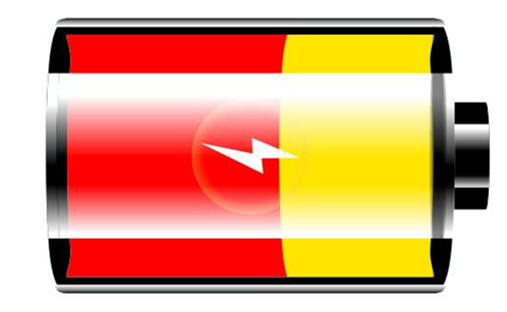Lithium Battery Composition-Electrodes, Electrolyte...
Sep 03, 2019 Pageview:1002
There are a lot of rechargeable battery types; the lithium-ion battery is one of them. In this battery, during the discharging, electrons move from the negative electrode to the positive electrode. Similarly, the electron moves in the opposite direction when recharge.
Introduction of lithium battery composition
There is a prominent chance of firing of lithium-ion batteries if they are kept at higher temperatures for a long time. Problems can also occur due to short circuit and even by overcharging. Lithium-ion batteries have high terminal voltage and this is the main reason why a lot of studies has been done on lithium-ion batteries. Due to the presence of the transition metal oxides in lithium-ion batteries, these show high performance.
What are the advantages to use lithium-ion batteries?
Lithium ion batteries are preferable to use over ordinary rechargeable batteries because of the following reasons:
· These are safe to use
· Lithium ion batteries show high performance
· Lithium ion batteries have a longer life
· These are perfect to use due to high energy density
· Its energy storage is comparatively high and these are best to use in automobiles and smart grids
· Due to the functionalized electrolytes, these batteries show high performance
· Its performance can easily be increased by using fluorinated compounds
Myths of lithium battery composition
Are you curious to know some of the myths of the lithium ion batteries? Let us inform you of some of the most interesting myths of lithium ion batteries
Myth#01
"These are unsafe to use"
Many people believe that the use of the lithium ion batteries can be dangerous but they are not right at all. The use of the lithium ion batteries is not unsafe at all. It contains the phosphate battery that is not dangerous at all. It is just safe to use due to its thermal stability. The great advantage to use this battery is its power to fight against the risks. It can easily handle the abuse.
Myth#02
"There is always room for extra charge"
The lithium ion batteries are not difficult to charge because these take comparatively less time to fully recharge. According to the myth, the battery has always some capacity to charge even when it has charged 100%. You can relate this example with the smartphone. There is always room for some extra charge of these batteries. But you know, what can be the drawback? The life span of the battery decrease whey you will overcharge it. Don't overcharge it if you wish to use the battery for a long run.
Myth#03
"When you charge a cell, it's capacity increases"
When you will charge the cell, its capacity will increase automatically. People are still not clear about the concept of the charge and the capacity; this is the main reason why this myth still exists. Fuel gauge could be the best example if you wish to know the exact energy level of your car. You should know what is the right time to recharge your battery when you will see the exact position of the fuel gauge? Keep in mind! It only detects its charge but not its capacity.
Myth#04
"18650 batteries often have the Primary or a Secondary cell"
18650 batteries are the type of lithium ion batteries. These use two types of cells:
1.Primary
2.Secondary
Primary cells are not rechargeable after discharging while on the other hand, secondary cells are rechargeable. This is the main reason, secondary cells are used widely. Previously, primary cells used in most of the applications but now companies are trying to replace it with the secondary cells. Secondary cells give direct power when you attach the laptop's or mobile's charger in the socket. Lithium ion batteries are considered as the secondary cells that are being used for so long.
How to deposit lithium battery composition properly?
Nickel-cadmium was banned in 2009 because it had an adverse effect on the environment. After that research was started to work on the lithium based batteries to overcome this issue. Remember! It was the great replacement of nickel-cadmium that really works well.
How to Charge Cobalt-blended Li-ion?
· Cobalt, nickel, manganese, and aluminum are present in such batteries.
· These are typically charged at 4.20V per cell.
· Its tolerance is estimated as +/–50mV/cell
· If the battery contains nickel, it could be charged 4.10V/cell
· If your lithium ion battery is of high capacity, it should be charged at 4.30V/cell. You can also keep this level high depending on the capacity of the battery to resist against the high volts and high temperatures.
· The charge rate of an Energy Cell is usually between 0.5C and 1C and it will approximately take 2-3 hours to recharge fully. Many manufacturers advised to charge them on 0.8C; it depends on the heating capacity of the battery. If the battery of the lithium ion battery is fully charged, don't over-charge it because it can damage the life span of the battery. If you will keep the charge efficiency to about 99%, your lithium ion battery will remain cool even when the battery will be fully charged.
· Some categories of lithium ion batteries need 9F to charge completely. Elevated internal resistance is one of the reasons why some batteries need high voltages to charge properly. Sometimes overcharge can cause reducing and dropping the current levels.
· Before choosing the right volts for your battery, someone must aware of the specification stresses of the battery because these play a vital role in the safety of lithium ion batteries. Although, lithium ion batteries are safe to use but revealing the precautionary measures will be suitable to eliminate the dangers.
Conclusion:
Lithium ion batteries are preferable to use over ordinary rechargeable batteries because they offer more advantages. The great development and advancement have been done on lithium ion batteries to make them more perfect to use. In the lithium ion batteries, MC methods accelerate and the overall synthesis process becomes simplify. The overall energy expenses decrease. Lithium ion batteries are economical because the cost of material is also low. In lithium ion batteries, you can see the prominent advantages.
Leave Message
Hottest Categories
-
Hottest Industry News
-
Latest Industry News











